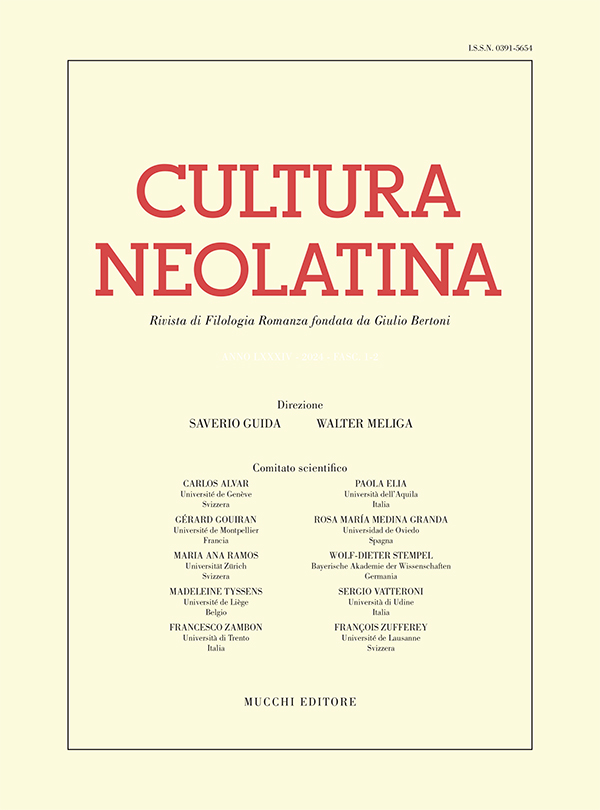Il saggio presenta l’edizione di una raccolta di testimonianze piacentina databile intorno alla metà del sec. XII, notevole non solo per i volgarismi disseminati qua e là, ma soprattutto per la presenza di un passo francamente volgare, che consiste in un’apostrofe ingiuriosa. Il caso in questione si presta, inoltre, a chiarire come fin dalle origini l’epiteto offensivo registrato in discorso diretto sia stato un veicolo ‘strutturale’ del passaggio del volgare alla scrittura nell’ambito della documentazione notarile tradizionalmente redatta in latino.
The essay presents the edition of a collection of witness depositions from Piacenza datable to around the middle of the 12th century, notable not only for the vulgarisms scattered here and there, but above all for the presence of a frankly vernacular passage consisting of an insulting epithet. The case in question also lends itself to clarify how since the Origins phase the insulting epithet recorded in direct speech has been a ‘structural’ vehicle for the transition of the vernacular language to writing in the context of notarial documentation traditionally written in Latin.

